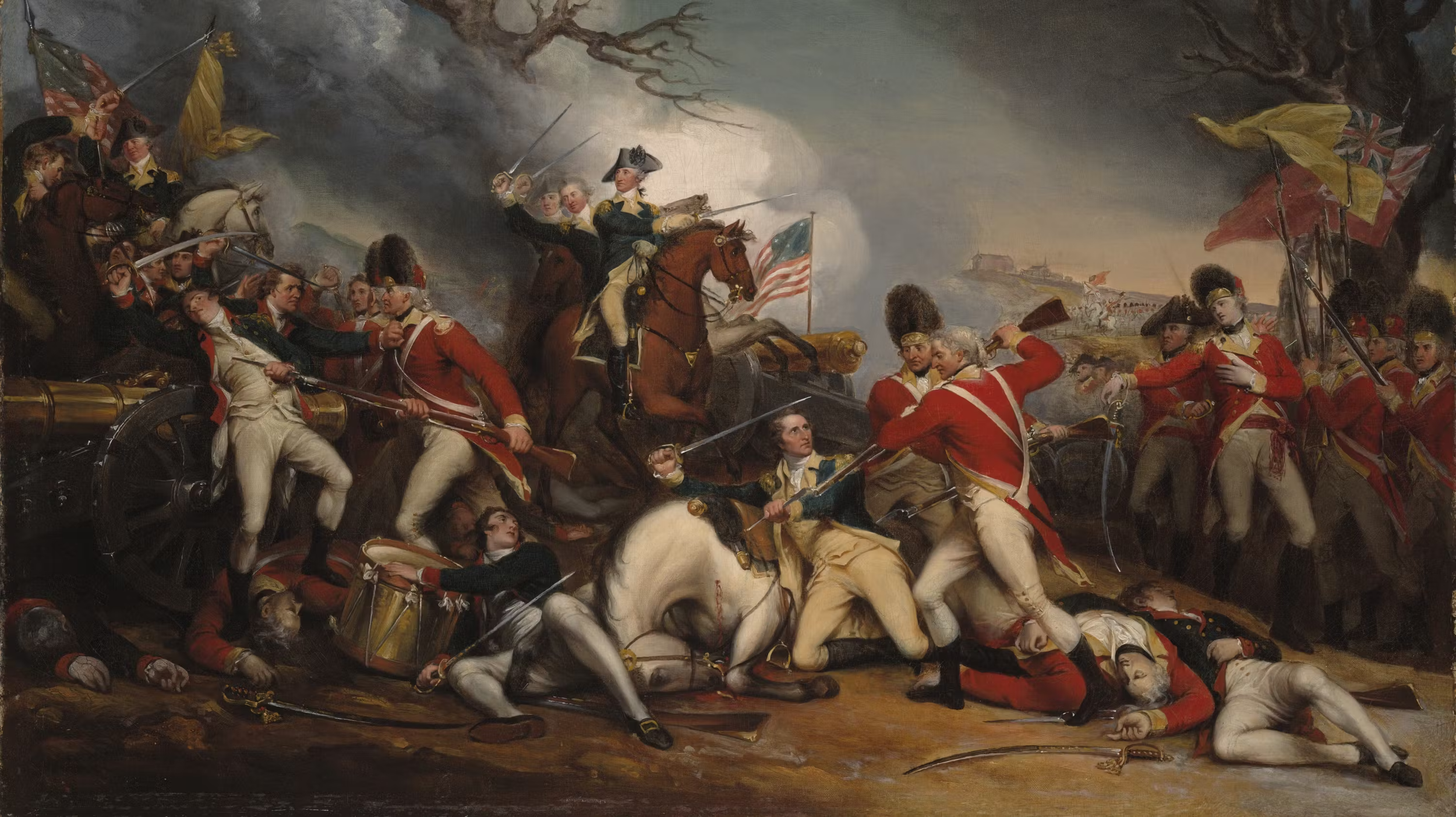Scots in the American Revolution
"The Death of General Mercer at the Battle of Princeton, January 3, 1777" painted by John Trumbull circa 1787-1831, depicts General Mercer's mortal wounding at the center of the scene. Yale University Art Gallery
Each July, Americans celebrate their hard-won independence. Amid the flags and fireworks, it’s worth remembering that Scottish immigrants and their descendants played a complex and pivotal role in the American Revolution. Their contributions—shaped by centuries of cultural resilience, political struggle, and Enlightenment thought—are deeply woven into the fabric of the nation’s founding.
Scotland’s Footprint in Colonial America
By the mid-18th century, Scots had been arriving in North America in large numbers. Some fled the devastation following the Battle of Culloden in 1746, where the Jacobite cause was decisively crushed. In the wake of that defeat, Highland communities were disarmed, traditional clan systems disrupted, and many were forcibly removed from their lands. These political exiles found themselves resettled in the colonies—often loyal to the British Crown out of pragmatism or survival.
Meanwhile, a different Scottish group had been arriving for decades: the Ulster-Scots. These were mostly Lowland Presbyterians who had first settled in Northern Ireland before emigrating to America. By the time of the Revolution, they were concentrated in frontier regions like Pennsylvania, the Carolinas, and Virginia. Known for their fierce independence, deep religious conviction, and community leadership, the Ulster-Scots were among the earliest and most fervent supporters of American resistance to British rule.
Fighting for King and Country—or for Liberty
Scots fought on both sides of the conflict. Many Highlanders, still reeling from the Jacobite rebellions, remained loyal to the British and joined Loyalist regiments like the Royal Highland Emigrants. They fought in campaigns across New York, Canada, and the Southern colonies. For some, military service offered stability, protection, and a chance to rebuild their lives under British command.
In contrast, many Ulster-Scots rallied to the Patriot cause. Their history of resisting religious persecution, paired with a belief in local self-governance, closely aligned with revolutionary ideals. Presbyterian ministers were often vocal advocates of independence, and their congregants filled the ranks of local militias. Some of the most important victories in the Southern campaign—like those at King’s Mountain and Cowpens—were led and won by Scotch-Irish communities determined to defend their homes and freedoms.
Revolutionary Figures of Scottish Descent
The Revolution’s leadership included a number of individuals with Scottish roots. John Witherspoon, a Scottish-born Presbyterian minister, was the only clergyman to sign the Declaration of Independence and became a leading voice for liberty. Hugh Mercer, a former Jacobite who had fled to America after Culloden, rose to the rank of general under George Washington and died a hero at the Battle of Princeton.
Scottish-American influence wasn’t limited to the battlefield. John Paul Jones, the Scottish-born naval commander often called the “Father of the American Navy,” gained fame for his daring raids and bold declaration, “I have not yet begun to fight!” Other figures like Thomas McKean, James Wilson, and Matthew Thornton—signers of the Declaration—traced their roots to Scottish or Ulster-Scot heritage.
The Influence of Scottish Enlightenment
Scotland also shaped the ideological foundation of the Revolution. The Scottish Enlightenment had flourished in the 18th century, producing philosophers like Francis Hutcheson, David Hume, and Adam Smith. Their writings on liberty, morality, and economic freedom were widely read and deeply influential among the Founding Fathers. The revolution’s emphasis on individual rights, representative government, and checks on power echoed these ideas across the Atlantic.
Reflecting on Our Scottish Roots
The end of the war saw many Loyalist Scots resettled in Canada or returned to Britain, while Patriot Scots helped forge the new American republic. They established schools, newspapers, and civic institutions grounded in their cultural values. Today, the legacy of Scottish-Americans is preserved not just in history books, but in the traditions and ideals that continue to define the United States.
At the United Scottish Clans of Oklahoma, we take pride in honoring this rich and complex heritage. As we celebrate Independence Day, we also reflect on the Scots—whether Highland, Lowland, or Ulster—whose stories helped shape America’s path to freedom.


